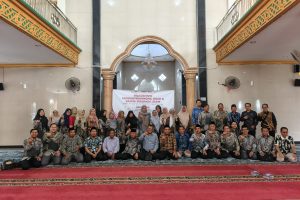
The Effect of Perception and Religiosity on Purchase Decision towards Non-Halal Skin Care Products: Case Study of Gen Z Muslims in Banjarmasin
Firqah Annajiyah Mansyuroh
Muslims need to consume halal goods, including consumption of skin care products for facial care. Although the majority of Indonesia’s population is Muslim, there are not many products that are halal-certified. The purpose of this study was to determine the factors that influence the purchasing decisions of skin care consumers of generation Z Muslims without the halal label in Banjarmasin. This research is a quantitative study with 145 Banjarmasin generation Z Muslims as a sample. Data were collected using a five-point Likert scale questionnaire, then analyzed by multiple linear regression. The results showed that the influence of perception and purchasing decisions was positive, while religiosity and purchasing decisions had a negative effect. The results of this study indicate the decision to purchase skin care without a halal label can be determined based on how much a person’s personal perception of the skin care product and religiosity related to spiritual values that influence one’s actions in making decisions. Religiosity is very important in one’s life. So generation Z who has a high level of religiosity will think of halal-haram for the actions they take during purchasing activities.
Courtesy: womantalk.com; zoyacosmetics ig




